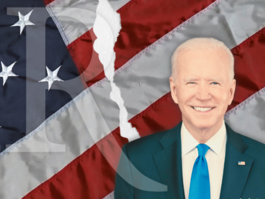Is It Still Good to be the King?
A Commentary By Tony Blankley
Since the end of World War II, in both the United States and Western Europe, the best way to win a national election has been to be the incumbent political party. But that 3-generation-old predisposition of publics in Western democracies may be coming to an end.
We may well be entering a political epoch in which the best way to win a national election in the West is not to be the party in power.
For the last 65 years, the world economic order has been vastly favorable to the middle-class citizens and voters in the West with their incomes going steadily up or at least flattening at a predictable and comfortable material level. Moreover, the middle-class fears of economic hardship were virtually eliminated by the existence of the welfare safety net.
Thus, while incumbent governments eventually get defeated due to scandals or simply having worn out their welcome, general public satisfaction with their economic condition has benefited existing governments that as matter of course are seen to be delivering such prosperity.
As a result, in the U.S. -- with the exception of Jimmy Carter who won in a fluke, because of the Watergate scandal -- neither the Democratic nor Republican parties have held the White House for less than eight years in a row since World War II (A fact since Grover Cleveland left the presidency in 1896.) Similarly in Britain, the Conservative and the Labor Parties have traded periods of rule of 13, 15, 18 and 13 years' duration (again, with one short exception) since World War II. Germany, likewise, has traded long durations between their Christian Democratic and Social Democratic parties of 22, eight and 16 years. Chancellor Angela Merkel is currently in her seventh year. France also gave its Gaullist Party 23 straight years of rule followed by giving the Socialist Party 14 continuous years of rule.
It is this long tradition to which no living memory can recall an alternative that has guided the assumption that incumbent presidents and premiers are favored in re-election.
Also, whether consciously or not, it is this expectation of re-election (in the absence of scandal or other shocking development) that has tended to induce Western governments to kick the policy cans down the road rather than risk unlikely defeat by bold shifts of policy.
But if my theory is right, the electoral ground is shifting under the feet of elected leaders in the United States, France, Germany, Britain, Spain, Portugal, Finland, Holland and most of the rest of the democratic world.
In virtually all the democratic countries, the current elected leaders are at 40 percent or below in job approval. Sixty-eight percent of French voters want to replace Nicolas Sarkozy. The Italian government coalition under Prime Minister Silvio Berlusconi suffered a crushing defeat in local elections a few months ago. British Prime Minster David Cameron has climbed back up to a mere 40 percent approval level after having increased his popularity by cutting short his vacation to come back and talk tough about London rioters.
This anti-incumbent bias against Western democratic governments will grow and persist until the correlation of world economic forces are seen to once again be favorable, or at least satisfactory, to the Western middle class. This is a mighty challenge.
The emergence of a more or less fungible world labor market means that Western wages will continue to be pulled down by the 2 billion potential new workers in China and India. The instantaneous movement of capital worldwide puts grinding pressure on Western employers and employees to be ever more productive. The deleveraging of excess debt, both public and private, in the U.S. and the West also is probably going to continue to create economic agony for more than a decade.
Once it becomes understood by Western politicians that incumbency is likely to lead to defeat, not re-election, a positive side effect is likely to be bold, even desperate policy initiatives by incumbents.
President Obama may be the last American president (for the duration of this anti-incumbent epoch I am predicting) who will permit himself to be stuck in a passive condition and assume that the trappings of incumbency will naturally lead to his re-election.
Whether they are socialist or free market politicians, we are likely to see them press hard for more vivid versions of their policy proposals. Kicking the can down the road will be seen as risky -- not safe -- politics. We are just beginning to see hints of this on the Medicare issue.
We should also expect to see ever-stronger third parties. This is already happening in Europe, which does not have the strong two-party tradition we have in the United States. But it will happen in the U.S. as well -- and sooner than we expect.
These third parties are likely to have eclectic policy combinations. For example, the fast emerging True Finn Party in Finland is a mix of cultural (ethnic/religious) conservatism and hostility to the European Union, but pro-social benefits for Finns. The hallmark of third parties will be nationalistic and "do what it takes" economically to protect the middle class from the global pressures.
If we are lucky, here in the U.S., this will be an historic opportunity for the re-emergence of a starkly de-regulated free market experiment.
President Obama has enacted in his first two years -- and is in the process of politically road testing -- a classic big, statist government response to economic hardship. Unless it succeeds beyond current expectation, Obama will have established a failed template -- against which future economic proposals will be aggressively contrasted.
Franklin D. Roosevelt's New Deal could never have been sold to the public in the absence of the perceived failure of Hooverism. De-regulated free markets would not be given a serious re-consideration across the political spectrum without the imminently manifest failure of the Obama model.
Tony Blankley is executive vice president of Edelman public relations in Washington. E-mail him at TonyBlankley@gmail.com.
COPYRIGHT 2011 CREATORS.COM
See Other Commentaries by Tony Blankley .
See Other Political Commentary
Views expressed in this column are those of the author, not those of Rasmussen Reports. Comments about this content should be directed to the author or syndicate.
Rasmussen Reports is a media company specializing in the collection, publication and distribution of public opinion information.
We conduct public opinion polls on a variety of topics to inform our audience on events in the news and other topics of interest. To ensure editorial control and independence, we pay for the polls ourselves and generate revenue through the sale of subscriptions, sponsorships, and advertising. Nightly polling on politics, business and lifestyle topics provides the content to update the Rasmussen Reports web site many times each day. If it's in the news, it's in our polls. Additionally, the data drives a daily update newsletter and various media outlets across the country.
Some information, including the Rasmussen Reports daily Presidential Tracking Poll and commentaries are available for free to the general public. Subscriptions are available for $4.95 a month or 34.95 a year that provide subscribers with exclusive access to more than 20 stories per week on upcoming elections, consumer confidence, and issues that affect us all. For those who are really into the numbers, Platinum Members can review demographic crosstabs and a full history of our data.
To learn more about our methodology, click here.



